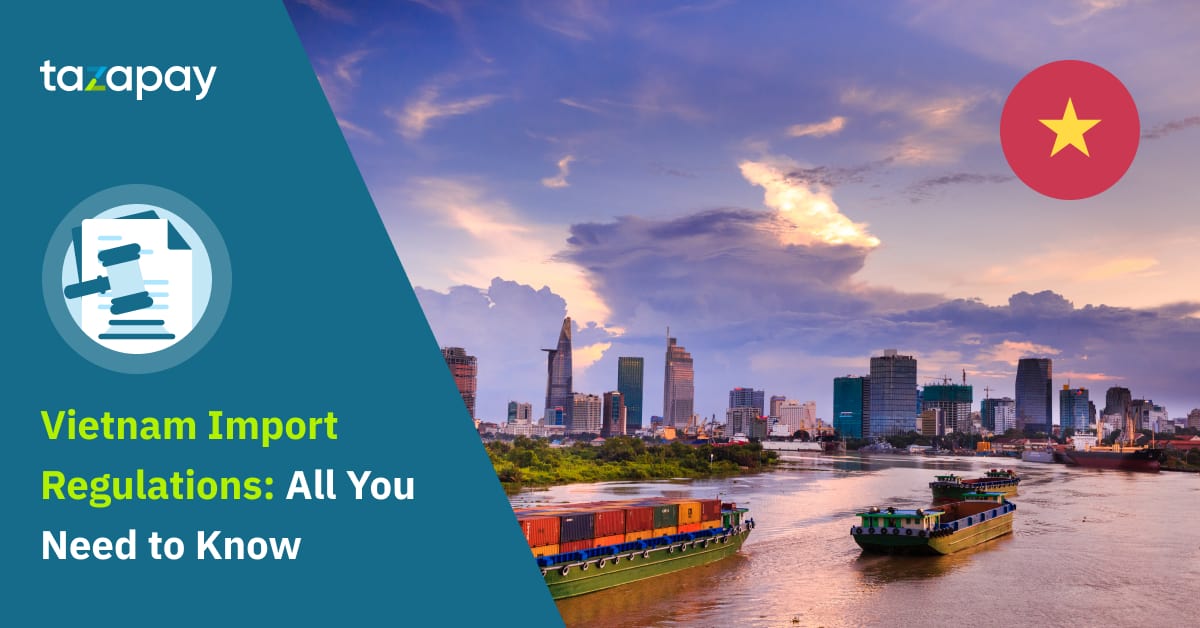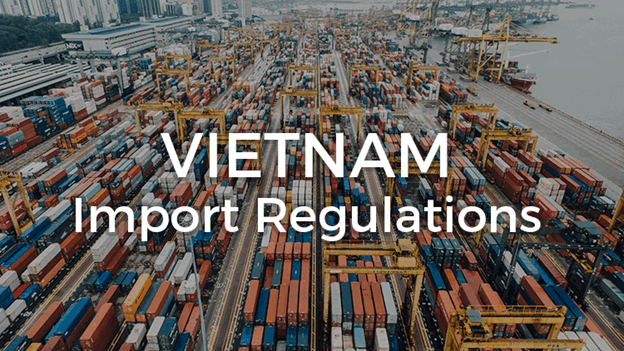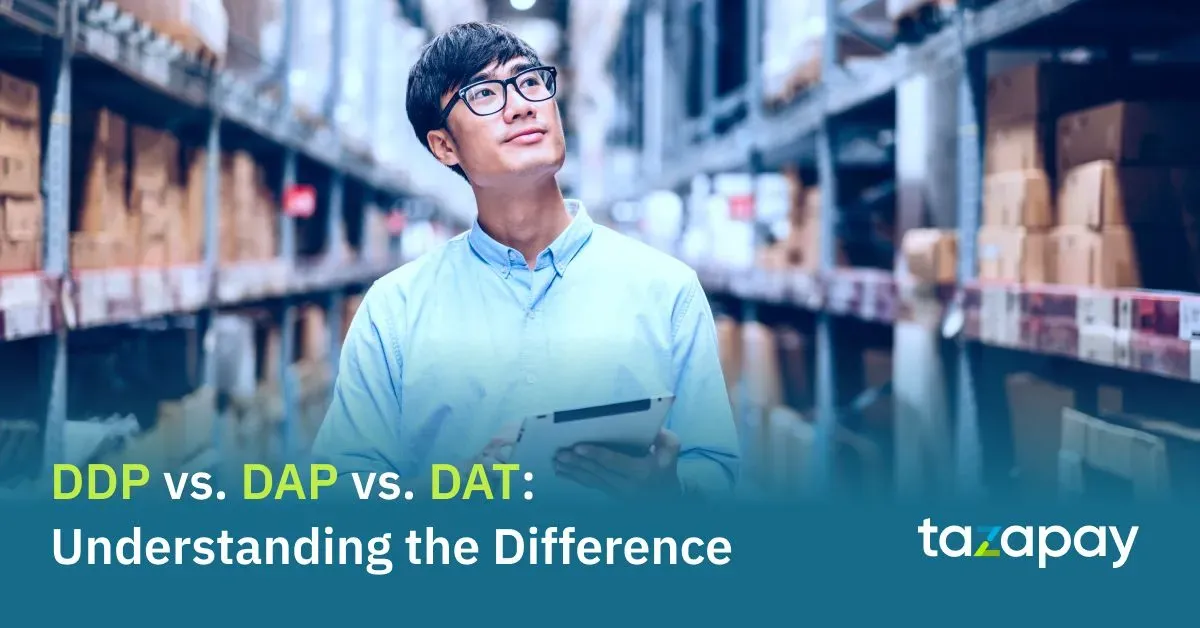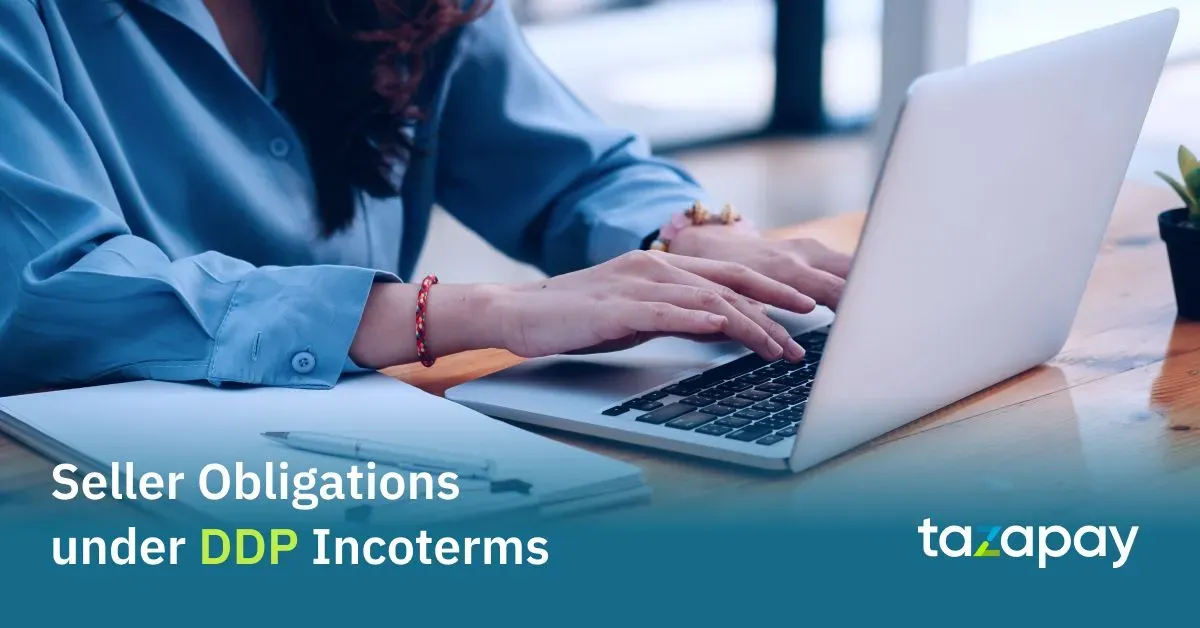- Home
Blog Blog
Customs & Incoterms Customs & Incoterms
Vietnam Import Regulations: All You Need to Know
Vietnam Import Regulations: All You Need to Know

The average annual GDP growth of Vietnam in the year 2019 was 7.02%. After the drop in GDP during the pandemic, it has recovered, and currently, the average annual GDP growth is 6.7%. There is no doubt about the fact that Vietnam is one of the fastest-growing economies in the world. Quite surprisingly, Vietnam’s import laws are strict and highly regulated by the government. Whether it is EXW incoterms (EXW shipping means EX works) or some other type, the regulations have to be followed strictly. Mentioned below are a few things you need to know about Vietnam’s import policies:

Import License
For importing to Vietnam, the importer has to obtain two main documents: a Department of Planning and Investment’s (DPI) business registration certificate and an investment license. The process is a little time-consuming and the approval can take up to 3 months. If the purpose is to just import and export goods from and to Vietnam, the investment license is sufficient. No distinct import license is required for it. With the investment license, you can also wholesale the goods to businesses. For businesses looking for an easy-access market, this provides them a great opportunity. However, a trading license is required if the aim is to sell the goods to the end-consumers in Vietnam. Once the incorporation is done and the capital contribution has been paid in full, it may take anywhere between 6 to 12 weeks to obtain it.
Before applying for the investment license, ensure that you list the products and check the Vietnam import regulations for any related information. For importing other goods in the future, the current investment license will not work and will have to be changed.
The Procedure for Import Licensing
All foreign investors have to register with Vietnam’s Department of Planning and Investment (DPI) for an import license so that they become eligible to operate import businesses in Vietnam. An Investment Certificate is also required by the investors. In case the firm has been involved in business for some time and wants to get involved in import activities, experts suggest that adjusting the Investment Certificate is the best option.
- 1. It may take up to 3 weeks to obtain the Investment Registration Certificate (IRC).
- 2. Business Registration Certificate (BRC) takes approximately 10-15 days.
- 3. In case retail sales are involved, a trading license is required that may take up to 12 weeks.
In some cases, foreign firms are allowed to import goods in Vietnam as per Circular 34/2013/TT-BCT.
Import-Related Taxation in Vietnam
It is important to have some basic knowledge about the import taxes in Vietnam before getting started with the business. The Import and Export Tax Law in Vietnam states that there are two types of taxation: Object of Taxation and Non-Object of Taxation
Object of taxation: Goods in these specific cases are an object of taxation.
- - Goods and cargos imported and exported through the Vietnam border.
- - Domestic goods that are considered non-tariff barriers and non-tariff goods that are brought into the domestic market.
Non-Object of taxation: Goods that fall in these specific cases are not considered an object of taxation.
- - Goods that are being transported across the borders or border gates of Vietnam.
- - When goods provided for by the Government are transferred through the border-gates.
- - Non-refundable and humanitarian aid.
- - When goods, imported from other countries, are brought into non-tariff zones and only used in non-tariff zones. Also, when goods are transported from a non-tariff zone to another non-tariff zone.
- - Goods whose portions have already been paid to the government in the form of natural resource tax during export.
According to the import policies, the maximum number of goods imported to Vietnam is subject to duty. Depending on the type of the good, the tax rates vary. All luxury consumer goods like alcohol, cars, and cigarettes are subject to higher import duties as compared to other goods such as industrial equipment, materials, and machinery that are necessary for manufacturing.
Import Tax Exemption in Vietnam
Most goods exported from Vietnam are exempted from tax. Export duties (somewhere between 0% to 45% and calculated on FOB price) are only charged on a few items. FOB incoterms mean free-on-board. Similarly, many products are on the tax exemption list during import as well according to the Export and Import duty Article 16 of the Law No. 107/2016/QH13:
- - All manufacturing materials, components, and supplies.
- - Goods that will be re-exported and imported only for a temporary time.
- - Raw materials and goods that are only available outside Vietnam’s territory.
- - An entity’s fixed assets such as equipment and machinery that are eligible for incentives
Prohibited Products
According to the Ministry of Industry and Trade’s Circular No. 34/2013/TT-BCT, certain goods are prohibited from import into Vietnam. The list includes:
- - Cigars
- - Petroleum oils and any bituminous mineral oils
- - Journals, periodicals, and even, newspapers
- - Types of recorded media like discs and tapes
- - Any second-hand good like electronics or automotive
Getting yourself familiarised with the Vietnam import regulations is very crucial if you actively do business in the country. Since it can be very difficult to obtain a license for your business on your own, you can opt to get in touch with local distributors for assistance. That said, one must be aware that this may take some time.
Now that you are familiar with all the regulations, it’s time to make sure that you choose a safe platform like Omoney to ensure that your import payment to Vietnam is well protected via escrow. You can also make use of Omoney’s free business verification tool to vet your trade partners’ background to ensure that you are dealing with a legit business
Category

Customs & Incoterms
Vietnam Import Regulations: All You Need to Know
Related Articles

DDP vs. DAP vs. DAT: Understanding the Difference

2010 vs. 2020: What Has Changed in Incoterms






